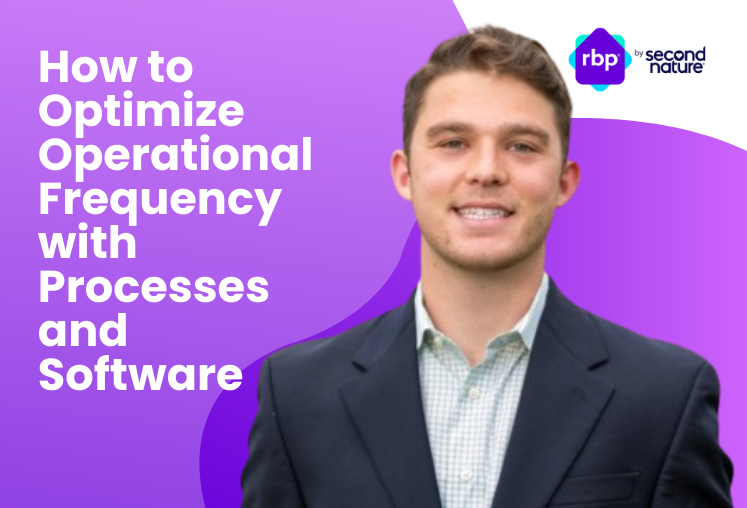Property management services have changed in leaps and bounds over the past 5-10 years. And property management outsourcing services have grown along with it.
While the traditional approach to property management simply provided the basics – maintenance, rent collection, etc. – entrepreneurial PMs saw a massive gap in that value proposition and have transformed the real estate industry. Now, property management services are increasingly seen as a way to generate value for residents, real estate investors, and property management companies. PMCs are delivering resident benefits like credit reporting, renter’s insurance programs, pet guarantees, and more. And each of these services acts as a value add for everyone involved.
But that can also add extra burden and cost to your property management business when your team is already spread thin. One of the best ways to offer value without overextending your team is to outsource some of those PM services to PropTech products, contractors, or a fully managed solution.
Today we’re going to talk about this option in more detail. Whether you’re just getting started in property management or a seasoned pro, we hope you’ll find something here to help.
Key Learning Objectives:
- What is outsourced property management?
- What services add the most value to the resident experience?
- What property management services are most easily outsourced?
- What are the costs associated with outsourcing PM services?
- What are the benefits of outsourcing PM services?

What is outsourced property management?
Outsourced property management refers to the practice of paying for a third-party company or product to handle certain tasks or operations for your property management company. This could include tasks such as tenant screening, resident benefits, renters insurance programs, rent collection, maintenance and repair coordination, lease enforcement, financial reporting, and more.
Property management is in itself an outsourced service for real estate investors/property owners. Just as property owners often choose to outsource their property management to save time, reduce stress, and ensure they stay profitable – property management companies may outsource several of their services for the same reasons.
Property management outsourcing services, whether PropTech products or fully managed solutions, allow property management companies to build efficiencies and focus on quality and growth. Outsourcing certain services can give residents more of what they need and investors more value for their dollar.
What property management services can property management companies outsource?
Advances in technology and innovation within the property management industry have given PMCs greater flexibility in terms of outsourcing key services.
As a property manager, you may outsource for a range of reasons. Maybe you’re still building up your team and need cost-effective expertise in a certain area. Maybe you have core products you want to focus on and want certain services to take less of your time. Maybe your investors or residents are asking for out-of-scope services that you can offer for an additional fee.
Overall, outsourced property management services can help PMCs save time, reduce stress, and maximize the profitability of their company.
So, what are some of the most commonly outsourced property management services? They can be grouped into a few categories:
- A property management tech stack with property management software and integrations that enable all kinds of business operations.
- Maintenance and repair. Many PMs outsource things like plumbing, HVAC, and other contractor work.
- Resident benefits and ancillary services. Property managers often outsource value-driving products like an RBP and other services that investors want, and residents will pay for.
Let’s dig into the services that might be included within each of those larger categories.
Rent collection
Third-party payment processing companies can handle the actual collection and processing of rent payments for the PMC.
The property management company will provide the payment processing company with the necessary information and details about the residents and the property, including lease terms, payment due dates, and amounts owed. The process may involve various payment methods, such as online payments, credit card payments, ACH transfers, or other payment options.
Some popular outsourcing solutions that help collect rent include Buildium, Propertyware, and AppFolio. Second Nature provides a fully managed service that helps ensure your residents pay rent on time.
Repair and maintenance
Many PMCs outsource repairs and property maintenance. We’ve spoken with experts like Bob Preston, who run their own maintenance companies separately as another source of income and an added value to their clients.
When a property management company outsources repair and maintenance, it typically involves hiring third-party contractors or service providers to handle the actual repair, upkeep, and maintenance tasks required for the property.
Outsourcing repair and maintenance can offer several benefits for property management companies. You can access a broader range of specialized skills and high-quality expertise, which may not be available in-house, and save time and resources by avoiding the need to recruit and manage in-house staff to handle repair and maintenance tasks.
Marketing and advertising
Marketing isn’t everyone’s strong suit, and that’s okay!
When a property management company outsources marketing and advertising, it typically involves hiring a third-party marketing or advertising agency to handle the promotion and advertising of the rental properties. The agency will work closely with the PMC to develop a comprehensive marketing strategy that aligns with the property's unique selling points and target audience.
The marketing agency may use a variety of advertising channels and mediums to promote the property, including social media marketing, search engine marketing, online advertising, email marketing, print advertising, and other marketing channels. They may also create engaging content and visuals, such as videos, images, and virtual tours, to showcase the property's features and amenities.
Legal
Most PMCs outsource their legal services to a third-party law firm or attorney to provide legal advice and representation on various matters related to the property or properties.
Legal services that may be outsourced can include lease agreements, evictions, compliance with local and federal laws and regulations, dispute resolution, and other legal matters that may arise in the course of managing the property.
Outsourcing legal services helps minimize legal risks and liabilities, ensure compliance with applicable laws and regulations, and protect the property investor’s interests.

Accounts and finance
Many PMCs outsource to an accounting firm or financial service provider to handle the financial management and reporting. The outsourced firm will work with you to manage financial records, provide financial reporting, and ensure compliance with accounting standards and regulations.
The accounting and financial services that may be outsourced can include bookkeeping, financial statement preparation, tax planning and compliance, budgeting and forecasting, and other financial reporting and analysis.
Overall, outsourcing accounts and finance can help property management companies to operate more effectively and efficiently and achieve their financial objectives while minimizing financial risks.
Insurance
PMCs often work with a third-party insurance broker or agent to provide insurance coverage and manage insurance-related issues for the property or properties. The insurance coverage that may be outsourced can include property insurance, liability insurance, workers' compensation insurance, and other types of insurance coverage that may be necessary or recommended for the property.
Another way to outsource insurance is to find a service that provides a renters insurance program like Second Nature’s. Ensuring that residents have insurance coverage is a priority for 90% of property managers, but only 41% of residents maintain compliant coverage.
At Second Nature, our renters insurance program has 100% compliance. You can learn more about our coverage and fully managed Resident Benefits Package in our 2023 Resident Experience Report.
Safety and security
Many PMCs outsource to a security company to provide safety and security services. The security company will work closely with the property management company to assess safety and security needs, design and implement safety and security protocols, and provide safety and security personnel and equipment as needed.
Security services that may be outsourced can include security personnel, security systems and equipment, safety training and education, emergency response planning and execution, and other safety and security-related services.
What are the costs associated with outsourcing PM services
The cost for a PMC to outsource some property management services can vary depending on a number of factors, such as the scope of services required, the complexity of the work, the location of the service provider, and the level of expertise required. Some service providers may charge a flat fee, while others may charge an hourly rate or a percentage of the property's rental income.
The cost for outsourcing property management services can range from as low at $1 per property per month to much as hundreds of thousands of dollars annually, depending on whether it’s a full-service tech solution, simple maintenance services, a Resident Benefits Package, etc.
It's important to note that while outsourcing property management services can come with a cost, it can also provide benefits such as increased efficiency, reduced workload, and access to specialized expertise. Before outsourcing any services, it's important to carefully consider the potential costs and benefits and to choose a service provider that offers high-quality services at a reasonable price.
How outsourcing property management services benefits you
Outsourcing property management services can have a massive impact on your return on investment per door and per client. Outsourcing also helps with scaling when you can’t afford to run every service in-house. With the ability to outsource, you can offer more value to your clients without skyrocketing your operating costs. You can also drive secondary sources of revenue through outsourcing.
Not convinced? Let’s go over some of the real-life benefits we’ve seen PMCs leverage with outsourcing select services.
Cost savings
Outsourcing property management services can save property management companies significant costs associated with hiring and managing in-house staff, as well as investing in technology and infrastructure. Outsourcing can also help to minimize overhead costs, such as office space, equipment, and supplies.
Let’s think even bigger. Outsourcing value-generating services like a Resident Benefits Package has multiple benefits: boosting resident satisfaction, incentivizing on-time payments, and reducing vacancy rates.
Talk about a cost-saving win!
Increased efficiency
We’ve seen PMCs use outsourcing to streamline their operations, reduce administrative property management tasks, and increase productivity. This can free up time and resources for property management companies to focus on core business functions and strategic planning. Instead of using your own team for time-consuming tasks, you can outsource them.
Access to expertise
Outsourcing property management services allows PMCs to access specialized expertise and skills that may not be available in-house. This can include legal, accounting, marketing, and maintenance expertise, among others. Outsourcing can also provide access to the latest technology and software, which can improve efficiency and effectiveness.
Better risk management
Property management inherently involves risk. You’re managing people’s lives on the one hand (residents) and investments on the other (owners/investors). Outsourcing can help better manage risks associated with property management, such as legal liabilities, compliance issues, and safety and security concerns. This can help to protect your company from financial and reputational damage.
Improved resident satisfaction
You can more seamlessly and reliably improve resident satisfaction by providing better maintenance and repair services, more efficient rent collection, and faster response times to tenant concerns and requests. This can help to increase tenant retention and attract new tenants.
Higher employee satisfaction
Outsourcing services to a third party is a direct way to impact your employees’ satisfaction. How? Outsourcing helps reduce workload, gives access to better training and development, improves working conditions, and provides a better work-life balance. Often, outsourcing means that your employees get to focus on the core functions that they love instead of getting bogged down in tasks they don’t love or don’t feel equipped for.
How thousands of PMCs are outsourcing services for better resident experiences
Property management companies are always looking for new ways to generate value for themselves, their residents, and their investors. One of the quickest ways to scale and increase return on investment can be outsourcing property management services.
At Second Nature, we’ve pioneered the first-ever fully managed Resident Benefits Package in order to support PMCs with just that goal. Our RBP provides services that residents are proven to pay and stay for – and our team manages every part of the process so property managers can focus on strategy, growth, or work-life balance.
We’ve helped thousands of property managers transform their services and their operations with a customized RBP providing services they couldn’t do alone. Our goal is to make property management easier for PMs, residents, and investors – and drive value that benefits all three. We call it the Triple Win.
Topics:



